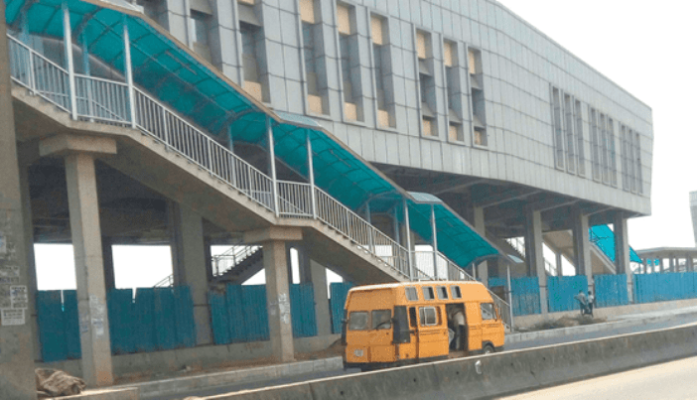…but tenants groan as house rent soars
For Lagos residents along the Lagos-Badagry Expressway (LBE), it is a new dawn as the combined effect of Blue Line rail and Bus Rapid Transit (BRT) operations has lowered transportation costs by over 30 percent.
The two public transport systems have been operating on that axis in the last two months and, incrementally, they have been getting patronage from residents who spend less than N500 to commute from Okokomaiko to CMS by BRT and less than N400 from Mile 2 to Marina by via the Blue Line rail.
For those reasons, commercial buses which had been charging commuters between N1000 and N1,4000 from Okokomaiko to CMS have been compelled to crash their charges to between N700 and N900 depending on the time of the day.
“It is a huge relief for me as a person. Even though I don’t patronise any of the two public transportation systems because I cannot endure the waiting, I still enjoy the benefit of their operations in this axis,” Funso Adebayo who lives in Ijanikin, but works on Lagos Island, told BusinessDay.
Adebayo recalled commuters’ ugly experience on that axis when the Federal Government removed fuel subsidy with the attendant petroleum price hike. “From my bus stop in Ijanikin, commercial buses were charging N700 to Mile 2. From there, you will pay N600 to CMS. But today, I pay N400 to Mile 2 and because of the train and BRT, buses now charge N300 to CMS,” he said.
For now, the Blue Line rail takes off from Marina on Lagos Island and empties passengers at its massive station at Mile 2 while the BRT takes commuters from either CMS or Tafawa Balewa Square (TBS) to Volks, Barracks, Iyan-Iba and Okokomaiko on the Lagos-Badagry Expressway.
According to the Lagos State Metropolitan Transport Authority (LAMATA), the operation of the rail system will also be extended to Okokomaiko in its final phase. Work on the second phase is already ongoing as BusinessDay observed recently.
By the time this is done, transportation costs on this corridor will hit the bottom and that will be a huge relief for residents of this area which is considered one of the ungoverned areas in Lagos.
“I have been living in this axis for the past 20 years and I have seen it all on this expressway,” Celestine Igboamalu who, until recently, was a clearing and forwarding agent in Apapa, told BusinessDay.
“On this very expressway, we have seen brazen armed robbery; we have seen traffic gridlock that kept commuters on the road till 12 midnight and beyond; today, all these have almost gone and people now move faster and pay less to get out of this place to other locations in town,” Igboamalu enthused.
On the flip side, however, Lagosians in this corridor who live in rented accommodation are contending with soaring house rent as landlords are taking advantage of rising demand to jerk up their house rent.
Though the expansion and reconstruction of the expressway has been delayed since its commencement in 2009 by Babatunde Fashola as governor of Lagos, people have been moving to that axis to take advantage of the opportunities which that piece of infrastructure has on offer.
BusinessDay findings show that this movement has increased since after the commencement of operations by both the BRT and the rail transportation systems. This is what landlords around Mile 2, Oluti, Alakija-Abule, Ado, Ojo-Alaba, Okokomaiko, Ijanikin, and Agbara–Badagry axis had been waiting for.
Rents and house prices in this axis have gone up significantly. Betty Morankeji who lives in Agric near Ojo Barracks told our reporter that the rent she pays for her 2-bedroom apartment has moved from N180,000 per annum to N240,000 per annum.
Similarly, a woman who identified herself simply as Mummy P and lives in a moderate estate at Ijanikin told BusinessDay that three-bedroom houses they bought at the estate for N8 million now sells for between N15 million and N18 million depending on the level of finishing.
She added that those who put those houses for rent at N350,000 per annum when they bought are now charging between N500,000 and N750,000 per annum depending on the level of finishing.
The developer of the estate, who did not want his name mentioned, told BusinessDay that what is happening with rent and house prices was expected, explaining that the value of real estate normally rises with the availability of infrastructure such as the Lagos-Badagry Expressway.
“More people are moving towards this area and so demand for rented accommodation has gone up which provides enough grounds for landlords to increase their rent. In the coming months and years, we are going to see more estate developers invest in that axis which is now seen as the new Lekki on the Lagos Mainland,” the developer said.
